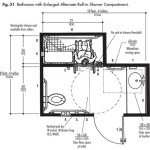Frequent Urination: Understanding the Causes and Implications
Frequent urination, also known as urinary frequency, is a common condition characterized by the need to urinate more often than what is considered normal. The typical voiding frequency ranges from four to eight times a day for most individuals. However, this can vary depending on factors such as fluid intake, age, and underlying health conditions. When the urge to urinate becomes disruptive, persistent, and exceeds this typical range, it warrants further investigation to determine the underlying cause.
The sensation of needing to urinate arises from a complex interplay of physiological processes involving the kidneys, bladder, and nervous system. The kidneys filter waste products from the blood, producing urine. This urine is then stored in the bladder, a muscular organ that expands to accommodate increasing volumes. Once the bladder reaches a certain capacity, nerve signals are sent to the brain, creating the sensation of needing to urinate. The act of urination involves the contraction of the bladder muscles and the relaxation of the urethral sphincter, allowing urine to be expelled from the body. Disruptions in any of these processes can contribute to frequent urination.
Numerous factors can trigger frequent urination, ranging from simple lifestyle choices to more serious medical conditions. It's crucial to identify the root cause to implement appropriate management strategies and prevent potential complications. Accurate diagnosis often involves a thorough medical history, physical examination, and diagnostic testing.
Increased Fluid Intake and Dietary Factors
One of the most common and readily apparent causes of frequent urination is increased fluid intake. Consuming large volumes of liquids, especially over a short period, naturally leads to more frequent voiding. Beverages with diuretic properties, such as coffee, tea, and alcohol, can further exacerbate this effect. These substances stimulate the kidneys to produce more urine, leading to a more rapid filling of the bladder and a more frequent urge to urinate. Certain foods, particularly those with high water content, such as watermelon and cucumbers, can also contribute to increased urinary frequency.
Furthermore, the timing of fluid intake can influence urination patterns. Drinking large amounts of fluids close to bedtime can result in nocturia, the need to wake up during the night to urinate. This can disrupt sleep and negatively impact overall quality of life. Limiting fluid intake in the evening and avoiding diuretic beverages before bed can help reduce nocturia.
Dietary factors beyond fluid intake can also play a role. High salt intake can lead to increased thirst and fluid consumption, indirectly contributing to frequent urination. Certain artificial sweeteners and food additives have been reported to irritate the bladder in some individuals, potentially triggering urinary urgency and frequency. Keeping a food diary and tracking potential triggers can help identify dietary factors that may be contributing to the problem.
Medical Conditions Affecting the Urinary Tract
Several medical conditions affecting the urinary tract can directly cause frequent urination. Urinary tract infections (UTIs) are a common culprit, particularly in women. UTIs occur when bacteria enter the urinary tract and infect the bladder, urethra, or kidneys. The infection causes inflammation and irritation, leading to a frequent and urgent need to urinate, often accompanied by a burning sensation during urination. UTIs typically require treatment with antibiotics to eradicate the infection.
Overactive bladder (OAB) is another common condition characterized by a sudden and uncontrollable urge to urinate, often accompanied by urinary frequency and nocturia. OAB is caused by involuntary contractions of the bladder muscles, even when the bladder is not full. The exact cause of OAB is not always clear, but it can be related to nerve damage, muscle weakness, or certain medical conditions. Treatment options for OAB include lifestyle modifications, bladder training exercises, medications, and in some cases, surgical interventions.
Interstitial cystitis (IC), also known as painful bladder syndrome, is a chronic condition characterized by bladder pain, urinary frequency, and urgency. The cause of IC is unknown, but it is thought to involve inflammation and irritation of the bladder lining. There is no cure for IC, but various treatments can help manage symptoms, including medications, bladder instillations, and lifestyle modifications. Diabetes mellitus, both type 1 and type 2, can also contribute to frequent urination. High blood sugar levels lead to increased glucose in the urine, which draws more water into the kidneys and increases urine production. This can result in both daytime frequency and nocturia. Effective management of diabetes through diet, exercise, and medication is crucial to control blood sugar levels and reduce urinary frequency.
Benign prostatic hyperplasia (BPH), an enlargement of the prostate gland, is a common condition in older men. The enlarged prostate can compress the urethra, making it difficult to empty the bladder completely. This can lead to frequent urination, urgency, and nocturia. Treatment options for BPH range from lifestyle modifications and medications to surgical procedures.
Neurological Factors and Other Underlying Causes
Neurological conditions that affect the nervous system's control of the bladder can also lead to frequent urination. Stroke, multiple sclerosis, Parkinson's disease, and spinal cord injuries can disrupt the nerve signals between the brain and the bladder, causing bladder dysfunction and urinary frequency. The specific effects on bladder function can vary depending on the location and severity of the neurological damage.
Certain medications, such as diuretics prescribed for high blood pressure or heart failure, can increase urine production and lead to frequent urination. Other medications, such as some antidepressants and antihistamines, can have anticholinergic effects, which can affect bladder function and contribute to urinary frequency. It is important to discuss any medications with a healthcare provider to understand their potential effects on urination patterns.
Pregnancy is a common cause of frequent urination in women. Hormonal changes and the growing fetus put pressure on the bladder, leading to increased urinary frequency, especially during the first and third trimesters. This is a normal physiological response to pregnancy and usually resolves after delivery. Anxiety and stress can also contribute to frequent urination in some individuals. The "fight-or-flight" response triggered by anxiety can cause the bladder muscles to contract, leading to a feeling of urgency and the need to urinate frequently. Managing anxiety through relaxation techniques, therapy, or medication can help reduce urinary frequency in these cases. In rare cases, frequent urination can be a symptom of more serious conditions such as bladder cancer or kidney disease. Therefore, it is important to seek medical attention if frequent urination is accompanied by other concerning symptoms such as blood in the urine, pain, or fever.
Understanding the potential causes of frequent urination is the first step towards effective management. A comprehensive medical evaluation is essential to identify the underlying cause and develop an individualized treatment plan. Lifestyle modifications, such as adjusting fluid intake and avoiding bladder irritants, can often provide relief. Medications can also be used to treat underlying conditions such as UTIs, OAB, or diabetes. In some cases, more invasive treatments such as surgery may be necessary. By working closely with a healthcare provider, individuals can effectively manage frequent urination and improve their quality of life.
The impact of frequent urination extends beyond the physical discomfort. It can significantly affect an individual's daily activities, sleep patterns, and overall well-being. The constant need to urinate can disrupt work, social activities, and travel. Nocturia can lead to sleep deprivation and fatigue, which can have negative consequences for cognitive function and mood. The embarrassment and anxiety associated with frequent urination can also lead to social isolation and reduced quality of life. Therefore, it is important to address this condition promptly and effectively.

Frequent Causes What It Means How To Stop

Toilet Habit Could Be Warning Sign For Conditions Like Cancer And Diabetes Gloucestershire Live

11 Meds That Can Make You Want To Goodrx

Pollakiuria Causes Treatment And More

Pollakiuria Symptoms Treatment And Management

Frequent With Prednisone 5 Ways To Manage It Mycrohnsandcolitisteam

Why Am I Going To The Toilet Frequently Archives Organic Health Solutions

8 Reasons You Re Pooping More Often Grady Health

Frequent Pregnancy What It Means And To Do About Babycenter

Overactive Bladder In Men Bph Treatment Dr Slade







